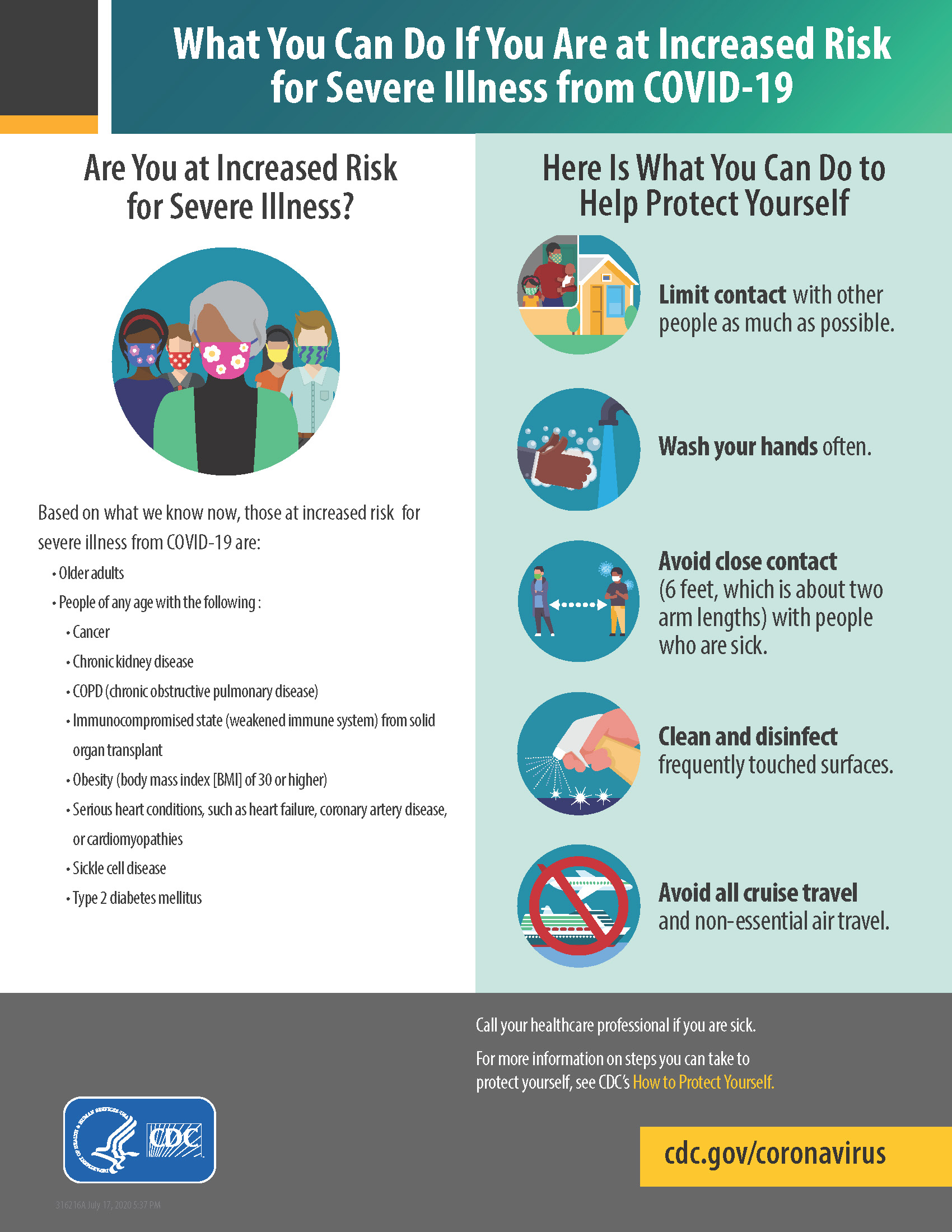There are many people at increased risk of getting very sick due to coronavirus. These people include older adults and individuals with serious chronic medical conditions such as heart disease, diabetes, and lung disease. If you are at a higher risk, it is especially important for you to take actions to reduce your chances of getting coronavirus. Here are some things you should be doing to decrease your risk:
Stock up on supplies
- Contact your healthcare provider to ask about getting extra necessary prescription medications to have on hand.
- Be sure to have enough household items on hand in case you need to stay home for a period of time.
Take everyday precautions
- Avoid contact with others who are sick.
- Wash your hands frequently with soap and water.
- Avoid touching your eyes, nose, or mouth.
- Thoroughly clean frequently touched surfaces in your home, such as phones, computers, remote controls, door knobs, light switches, faucet handles, appliances, etc. Also thoroughly wash and dry clothes, sheets, towels, and blankets in your house.
- Avoid wearing the shoes you wear outside into your house.
- Avoid large crowds of people.
- Limit cruise and air-travel as much as possible.
- Have a plan if you or your caregiver become ill.
- Stay connected to others by phone or email.
Managing your chronic conditions
- Know your condition – your healthcare provider will be able to give you information about your condition. The more you know about your condition, the better you’ll be able to manage it.
- Take responsibility for your health and care, find out the best course of care for your condition. Make sure you pay attention to how you’re feeling and note any changes in your health.
- Get a treatment plan for your overall health.
- Commit to lifestyle changes – make positive changes to benefit your condition such as quitting smoking, losing weight, eating better, or exercising.
- Manage your medications – know important facts like why you take them, when/how best to take them, and warning signs of adverse reactions.
Be aware of symptoms of coronavirus
- Difficulty breathing or shortness of breath
- Persistent pain or pressure in the chest
- New confusion or inability to awaken
- Bluish lips or face
If you develop any of these symptoms, seek medical attention immediately!
Reference: Centers for Disease Control and Prevention | Gateway to Better Health


